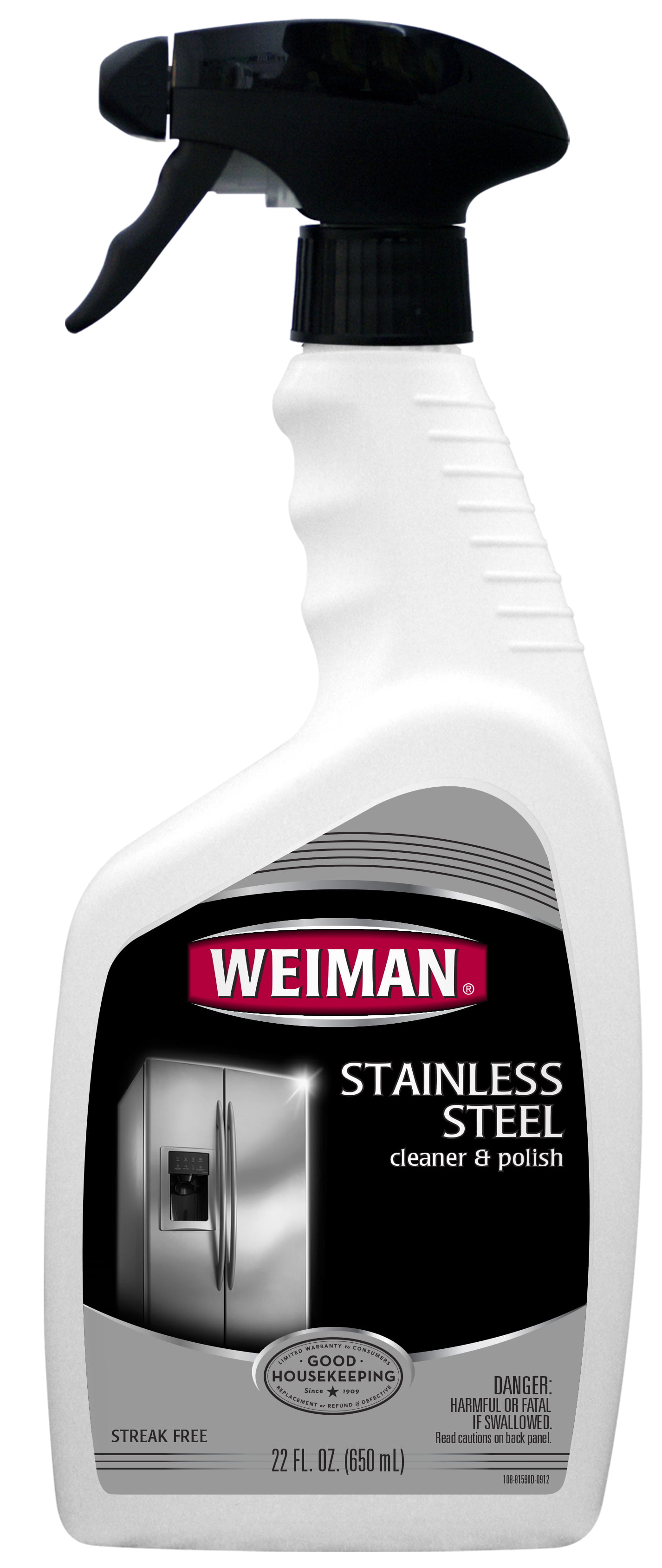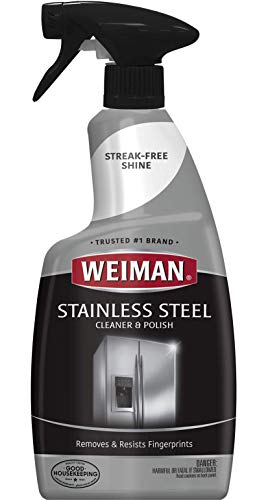
- #WEIMAN STAINLESS STEEL CLEANER AND POLISH WALMART HOW TO#
- #WEIMAN STAINLESS STEEL CLEANER AND POLISH WALMART SKIN#
- #WEIMAN STAINLESS STEEL CLEANER AND POLISH WALMART PORTABLE#
They typically emit a powerful odor as well-use in a properly ventilated area and wear personal protective equipment to avoid becoming dizzy, nauseous, or saddled with a headache. Though more effective for heavy-duty cleaning, these cleaners may be too abrasive for stainless steel that serves an aesthetic purpose, such as the surface of your dishwasher or refrigerator.
#WEIMAN STAINLESS STEEL CLEANER AND POLISH WALMART SKIN#
These chemicals can cause eye and skin irritation, nausea, dizziness, and vomiting, while the flammable ingredients can also create a substantial fire risk if the product is not used correctly.

These cleaners tend to be less effective than commercial chemical cleaners on heavy-duty grime, oil, and stains, but folks who favor them find they work just fine for regular cleaning around the house.
#WEIMAN STAINLESS STEEL CLEANER AND POLISH WALMART PORTABLE#
Wipes are portable and easy to use, but you’ll go through them quickly, which can make them more expensive than the other forms of stainless steel cleaner.

Simply spray onto the surface following the manufacturer’s directions, then wipe with a microfiber cloth. Sprays and aerosols are the most common type of stainless steel appliance cleaner because they’re easy to use.

When wiped away, they typically reveal a polished shine that makes appliances look great.
#WEIMAN STAINLESS STEEL CLEANER AND POLISH WALMART HOW TO#
Use this guide to learn how to pick the right product and why the following are considered among the best stainless steel cleaners available. We tested all the top picks based on strict rubics that included how well they cleaned and removed fingerprints, ease of use, and scent. There are also different formulations and application types to choose from. There’s a variety of stainless steel cleaners on the market, and some are developed to work on particular items, such as appliances, cookware, and grills. To clean, polish, and remove residue without harming the finish, use a product specially formulated for stainless steel. What’s more, ammonia and bleach, common in some all-purpose cleaners, can damage stainless steel. But it can quickly accumulate grime, oil, fingerprints, and water spots that some cleaners can’t quite banish without leaving messy streaks behind. Stainless steel offers an attractive, durable surface that is resistant to both water damage and rust.


 0 kommentar(er)
0 kommentar(er)
